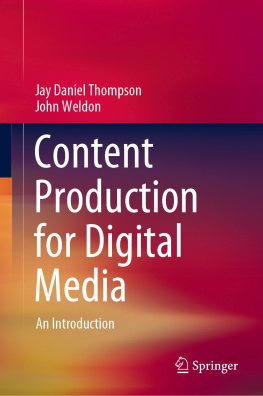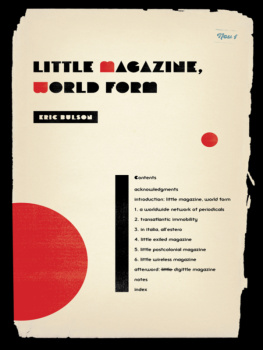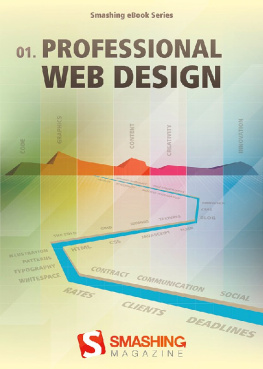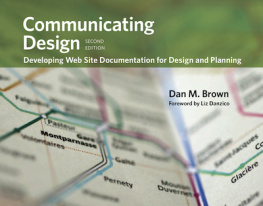Magazine Production
Magazine Production presents a guide to the practical processes of taking a magazine from initial idea to final product. This second edition provides important revisions on these production processes by examining the technological and business advancements which have reshaped the magazine industry in the last decade. Brand new chapters document the rise of digital media and identify its impact on magazine creation. They also include new guidance on designing online, tablet and mobile editions, as well as for print.
Magazine Production explains the business of magazines in the UK, Europe and North America, and the roles of marketing, publishing and advertising in establishing a successful title. This edition also addresses the move by publishers towards e-commerce, multimedia content and events to promote their brands and sell products. With information on professional bodies such as the Professional Publishers Association, an expert overview of magazine markets and a breakdown of roles within editorial and design departments, this book offers readers practical steps to achieving success in magazine publishing today.
Magazine Production includes:
- an introduction to the history, markets and audiences of magazines
- explanations of the roles of publishers and advertising teams as part of the business of magazines
- a comparison between print and new systems of digital circulation, with particular focus on mobile platforms;
- guidance on setting up editorial teams, and best practice for producing feature, news and review copy
- information on designing and laying out a title for print or digital distribution
- legal and ethical issues affecting magazine editors and publishers
- a consideration of the future of magazines.
Jason Whittaker is Head of the School of English and Journalism at the University of Lincoln, UK, with a special responsibility for magazine production and contextual studies. He has over 15 years experience as a journalist, and ten years as an editor with a special interest in IT and B2B titles. He is the author of numerous academic books and articles including Producing for Web 2.0 (2009).
Media Skills
E DITED BY R ICHARD K EEBLE , L INCOLN U NIVERSITY
The Media Skills series provides a concise and thorough introduction to a rapidly changing media landscape. Each book is written by media and journalism lecturers or experienced professionals and is a key resource for a particu- lar industry. Offering helpful advice and information and using practical examples from print, broadcast and digital media, as well as discussing ethical and regulatory issues, Media Skills books are essential guides for students and media professionals.
Designing for Newspapers and Magazines
2nd edition
Chris Frost
English for Journalists
Twentieth Anniversary Edition
Wynford Hicks
Ethics for Journalists
2nd edition
Richard Keeble
Feature Writing for Journalists
Sharon Wheeler
Freelancing for Television and Radio
Leslie Mitchell
Interviewing for Journalists
2nd edition
Sally Adams, with Wynford Hicks
Interviewing for Radio
2nd edition
Jim Beaman
Magazine Production
2nd edition
Jason Whittaker
Programme Making for Radio
Jim Beaman
Production Management for Television
Leslie Mitchell
Researching for the Media
2nd edition
Adle Emm
Reporting for Journalists
2nd edition
Chris Frost
Subediting and Production for Journalists
2nd edition
Tim Holmes
Writing for Broadcast Journalists
2nd edition
Rick Thompson
Writing for Journalists
3rd edition
Wynford Hicks with Sally Adams, Harriett Gilbert, Tim Holmes and Jane Bentley
Second edition published 2017
by Routledge
2 Park Square, Milton Park, Abingdon, Oxon OX14 4RN
and by Routledge
711 Third Avenue, New York, NY 10017
Routledge is an imprint of the Taylor & Francis Group, an informa business
2017 Jason Whittaker
The right of Jason Whittaker to be identified as author of this work has been asserted by him in accordance with sections 77 and 78 of the Copyright, Designs and Patents Act 1988.
All rights reserved. No part of this book may be reprinted or reproduced or utilised in any form or by any electronic, mechanical, or other means, now known or hereafter invented, including photocopying and recording, or in any information storage or retrieval system, without permission in writing from the publishers.
Trademark notice: Product or corporate names may be trademarks or registered trademarks, and are used only for identification and explanation without intent to infringe.
First edition published by Routledge 2008
British Library Cataloguing in Publication Data
A catalogue record for this book is available from the British Library
Library of Congress Cataloging in Publication Data
Names: Whittaker, Jason, 1969 author.
Title: Magazine production / Jason Whittaker.
Description: 2nd edition. | London; New York: Routledge, 2016. |
Series: Media skills | Includes bibliographical references and index.
Identifiers: LCCN 2016020495 | ISBN 9781138122147 (hardback : alk. paper) |
ISBN 9781138122154 (pbk. : alk. paper) | ISBN 9781315650616 (ebook)
Subjects: LCSH: PeriodicalsPublishingHandbooks, manuals, etc. | Magazine
designHandbooks, manuals, etc.
Classification: LCC Z286.P4 W48 2016 | DDC 070.5/72dc23
LC record available at https://lccn.loc.gov/2016020495
ISBN: 978-1-138-12214-7 (hbk)
ISBN: 978-1-138-12215-4 (pbk)
ISBN: 978-1-315-65061-6 (ebk)
Typeset in Goudy
by Keystroke, Neville Lodge, Tettenhall, Wolverhampton
Magazines fill our daily lives. Often we encounter them casually as filler when we are waiting for an appointment, or something to read while travelling by train. At other times, they are the focus for interests, hobbies and our professional life, something that we subscribe to or actively seek out because they are the best source of information on a particular subject.
Since the publication of the first edition of this book, magazine production has undergone some profound changes. In the first decade of the twenty-first century, plenty of magazine publishers were starting to launch web sites, but most were struggling to find a way to make money from those sites and nearly all the attention certainly for the most important titles remained firmly fixed on print. Two particular elements have changed this approach to digital: first of all, social media emerged in that decade as perhaps the most important means of connecting people ever seen and, like all media companies, magazine publishers had to start taking a digital strategy seriously.
More dramatically for the future of print titles, when Apple launched the first iPhone in 2007 the world of mobile began to have an impact on magazines just as the web more generally had affected newspapers during the previous decade. While it took a little while for these changes to be felt, when Apple followed the iPhone with the iPad in 2010 it became clear that more and more readers preferred consuming media on a screen rather than through the printed pages of a magazine.












